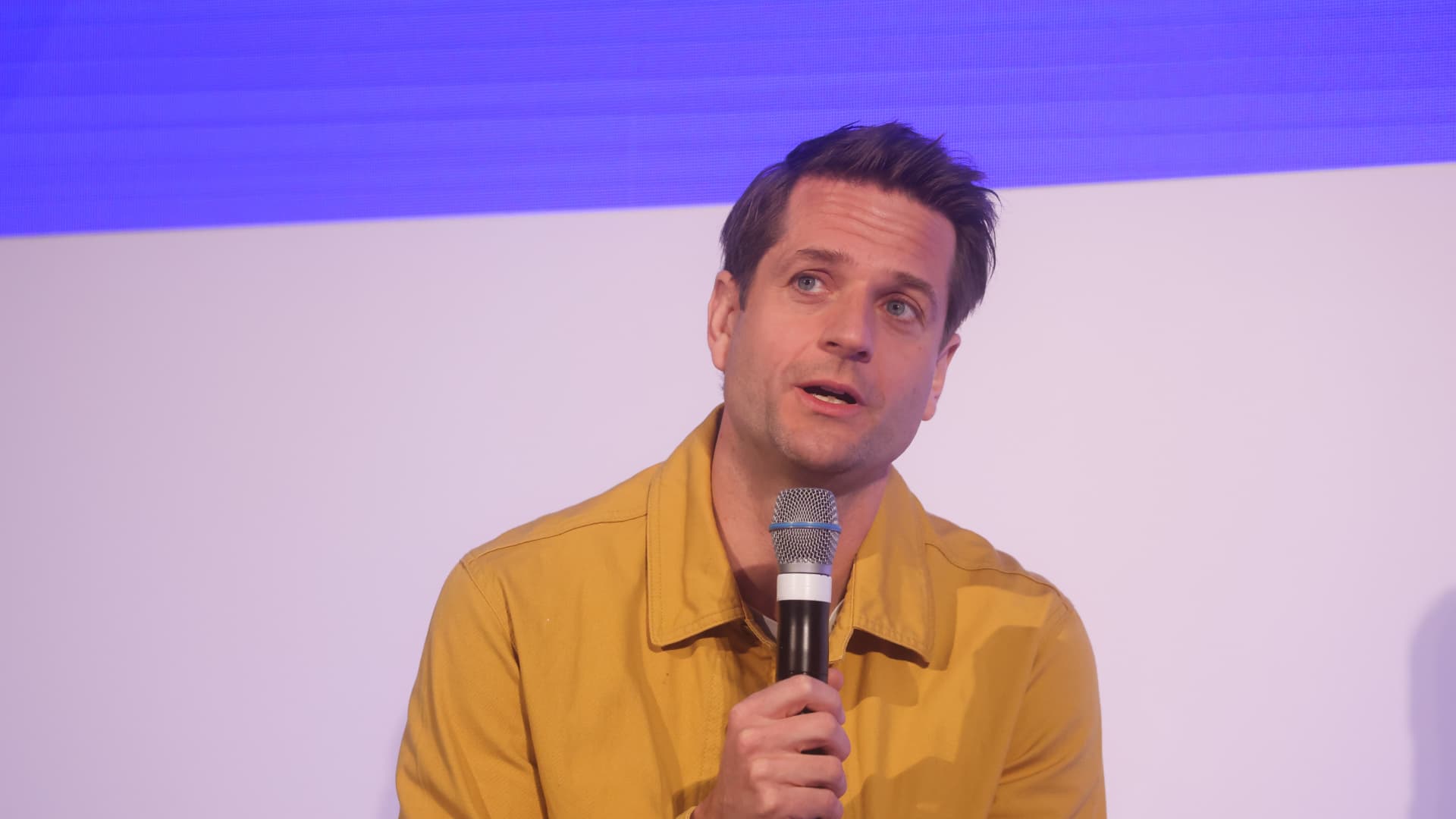
Sebastian Siemiatkowski, CEO of Klarna, speaking at a fintech event in London on Monday, April 4, 2022.
Chris Ratcliffe | Bloomberg via Getty Images
HELSINKI, Finland — Klarna will become profitable again by next year after making deep cuts to its workforce, CEO Sebastian Siemiatkowski told CNBC.
Klarna lost more than $580 million in the first six months of 2022 as the buy now, pay later giant burned through cash to accelerate its expansion in key growth markets like the U.S. and Britain.
Under pressure from investors to slim down its operations, the company reduced headcount by about 10% in May. Klarna had hired hundreds of new employees over the course of 2020 and 2021 to capitalize on growth fueled by the effects of Covid-19.
“We’re going to return to profitability” by the summer of next year, Siemiatkowski told CNBC in an interview on the sidelines of the Slush technology conference last week. “We should be back to profitability on a month-by-month basis, not necessarily on an annual basis.”
The Stockholm-based startup saw 85% erased from its market value in a so-called “down round” earlier this year, taking the company’s valuation down from $46 billion to $6.7 billion, as investor sentiment surrounding tech shifted over fears of a higher interest rate environment.
Buy now, pay later firms, which allow shoppers to defer payments to a later date or pay over installments, have been particularly impacted by souring investor sentiment.
Siemiatkowski said the firm’s depressed valuation reflected a broader “correction” in fintech. In the public markets, PayPal has seen its shares slump more than 70% since reaching an all-time high in July 2021.
Ahead of the curve?
Siemiatkowski said the timing of the job cuts in May was fortunate for Klarna and its employees. Many workers would have been unable to find new jobs today, he added, as the likes of Meta and Amazon have laid off thousands and tech remains a competitive field.
“To some degree, all of us were lucky that we took that decision in May because, as we’ve been tracking the people who left Klarna behind, basically almost everyone got a job,” Siemiatkowski said.
“If we would have done that today, that probably unfortunately would not have been the case.”
His comments may raise eyebrows for former employees, some of whom reportedly said the layoffs were abrupt, unexpected and messily communicated. Klarna informed staff of the redundancies in a pre-recorded video message. Siemiatkowski also shared a list of the names of employees who were let go publicly on social media, sparking privacy concerns.
While Siemiatkowski admitted to making some “mistakes” around moves to keep costs under control, he stressed that he believed it was the right decision.
“I think to some degree actually, Klarna was ahead of the curve,” he said. “If you look at it now, there’s been tons of people who’ve been making similar decisions.”
“I think it’s a good sign that we faced reality, that we recognized what was going on, and that we took those decisions,” he added.
Siemiatkowski said there was some “insanity” caused by the competition among tech firms to attract the best talent. The job market was largely employee-driven, particularly in tech, as employers struggled to fill vacancies.
That trend is under threat now, however, as the threat of a looming recession has prompted employers to tighten their belts.
Earlier this month, Meta, Twitter and Amazon all announced they would lay off thousands of workers. Meta let go 11,000 of its employees, while Amazon parted with 10,000 workers. Under the reign of its new owner Elon Musk, Twitter laid off about half of its workforce.
The tech sector has been under pressure broadly amid rising interest rates, high inflation and the prospect of a global economic downturn.
But the mass layoff trend has been criticized by others in the industry. Julian Teicke, CEO of digital insurance startup Wefox, decried the wave of layoffs, telling CNBC in an interview that he’s “disgusted” by the disregard of some companies for their employees.
“I believe that CEOs have to do everything in their power to protect their employees,” he said in a separate interview at Slush. “I haven’t seen that in the tech industry. And I’m disgusted by that.”
